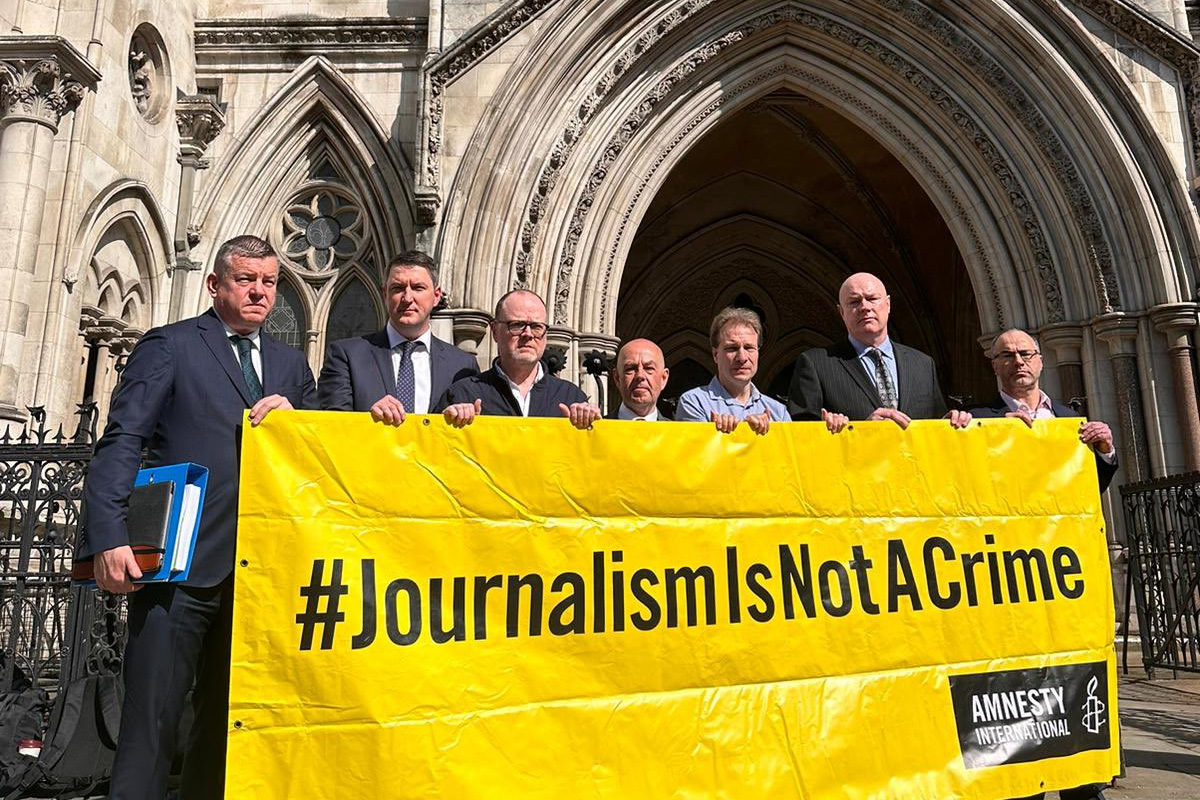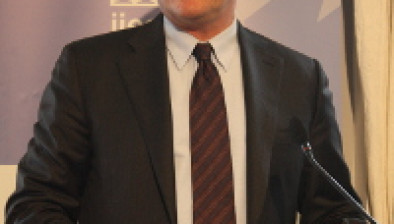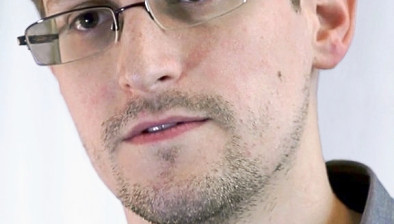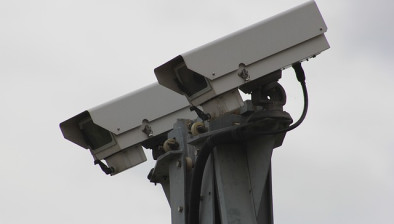Nothern Ireland journalists vindicated in spying case

The PSNI and the Metropolitan Police unlawfully spied on investigative journalists Barry McCaffrey and Trevor Birney, the Investigatory Powers Tribunal (IPT) ruled today.
Mr Birney and Mr McCaffrey were arrested in 2018 following the release of No Stone Unturned, their documentary about the 1994 Loughinisland massacre.
After a court in Belfast ruled the search warrants and arrests were unlawful, the pair took action at the IPT, backed by the National Union of Journalists (NUJ) and Amnesty International.
In today’s ruling, the tribunal found that the PSNI had repeatedly acted unlawfully, in breach of the European Convention of Human Rights and the Human Rights Act 1998.
The PSNI’s chief constable at the time, Sir George Hamilton, acted unlawfully by failing to “consider whether there was an overriding public interest justifying an interference with the integrity of a journalistic source” when he authorised a spying operation against an official at the Office of the Police Ombudsman of Northern Ireland.
The judgment describes his decision to authorise the directed surveillance operation as “unlawful at common law” and that it violated the ECHR and the Human Rights Act 1998.
The IPT has now quashed the authorisation by the chief constable and ordered the PSNI to pay £4,000 in damages to both journalists, the first time that the tribunal has ordered a police force to pay damages for unlawful intrusion.
In a statement, Mr Birney said: “This landmark ruling underscores the crucial importance of protecting press freedom and confidential journalistic sources. I hope that our judgment today will help to protect and embolden other journalists pursuing stories that are in the public interest.
“The judgment serves as a warning that unlawful state surveillance targeting the media cannot and should not be justified by broad and vague police claims. The judgment raises serious concerns about police abuse of power and the law. Our case has exposed the lack of effective legal safeguards governing secret police operations.
“As a result of our case going to the Investigatory Powers Tribunal, the PSNI has already been forced to admit that they spied on 300 journalists and 500 lawyers in Northern Ireland.
“Only a public inquiry can properly investigate the full extent of unlawful and systemic police spying operations targeting journalists, lawyers and human rights defenders in the North.”
Mr McCaffrey added: “This ruling marks a significant victory for press freedom, and it has exposed critical failures in both the monitoring and oversight of surveillance operations carried out against journalists and their sources.
“Despite all of their efforts, the police were still unable to identify our sources for the film. They wasted police time and resources going after us instead of the Loughinisland killers.
“The judgment, particularly its condemnation of Sir George Hamilton’s leadership, highlights the urgent need for reform. The police need to change, they should respect press freedom, they must abide by the rule of law and uphold the democratic principles of transparency and accountability.”
Ben Jaffey KC, instructed by Finucane Toner Solicitors, appeared before the tribunal on behalf of Mr McCaffrey. Stephen Toal KC, instructed by KRW Law, appeared on behalf of Mr Birney.
The NUJ intervened in the proceedings with a legal team comprising solicitor Olivia O’Kane, Brenda Campbell KC, Sean Mullan BL and the union’s legal and equality officer Natasha Morris.
Ms O’Kane said: “The NUJ provided the IPT with witness statements from a variety of members and journalists together with two sets of detailed legal submissions and its legal team attended the hearing of this case. That, together with the important work undertaken by the NUJ over many years in supporting this legal action, was of huge significance.
“The NUJ were no doubt central in illustrating the general out-workings of the real-world consequences if there are derogations to public interest and investigative journalism without lawful scrutiny prior to such interference.
“This case involved serious matters of journalistic legal principles, the rule of law and public interest journalism. On behalf of its members, the NUJ successfully advocated on these important and constitutional issues.”










